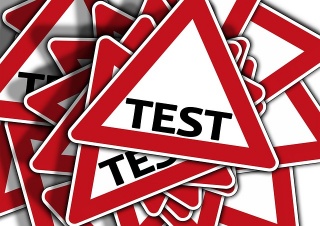The questions which follow provide a basic knowledge test of selected concepts covered in this learning pathway:
Describing project management.
The questions published at the end of each learning pathway are re-used for the knowledge test for learners interested in earning a digital badge or certificate of participation for the Role of the project manager (IPM101) micro-course. Please consult the Certify participation page for more information.
Indicate whether the following statements are true or false:
- A standard project typically has the following four major phases: Initiation > Planning > Implementation > Closure
- True
- False
- Incorrect, Initiation > Planning > Implementation > Closure are the four major phases of a project.
- In the Planning Phase issues of feasibility (“can we do the project?”) and justification (“should we do the project?”) are addressed
- True
- False
- No, feasibility and justification are addressed in the initiation phase.
- During the Implementation Phase progress is continuously monitored and appropriate adjustments are made and recorded as variances from the original plan
- True
- False
- No, progress is continuously monitored and appropriate adjustments are made and recorded as variances from the original plan in the Implementation Phase .
- The last step in the Closure Phase is to conduct a ‘lessons-learned’ exercise to examine what went well and what didn’t
- True
- False
- No, the last step in the Closure Phase is to conduct a ‘lessons-learned’ exercise.
Multiple choice questions
- Indicate which of the following are included in the four phases of the project life cycle (Select all that apply - there are four correct answers.):
- Conceptualising
- No, this is not one of the four phases.
- Initiation
- Right, this is one of the four phases.
- Planning
- Yes, this is one of the four phases.
- Implementation
- Correct, this is one of the four phases.
- Closure
- Yeah, this is one of the four phases.
- Indicate which ONE of the following statements about the Project Management Institute (PMI) is FALSE:
- Eight volunteers founded the PMI in 1989
- Correct, this statement is false. Five volunteers founded the PMI in 1969.
- The PMI introduced the PMBOK Guide to keep project management terms and concepts clear and consistent
- No, this statement is true.
- The PMI is responsible for developing and promoting PMBOK
- No, this statement is true.
- The PMI administers a professional certification program for project managers
- No, this statement is true.
- Which of these statements are true concerning the initiation phase? (Select all that apply - there are three correct answers.):
- The project objective or need is identified
- An appropriate response to the need is documented in a business case
- A feasibility study is conducted
- The project’s tasks and resource requirements are identified
- No, this is part of the planning phase.
- According to the PMI, the scope statement should include which of the following? (Select all that apply - there are three correct answers.):
- Description of the scope and product acceptance criteria
- Yes, these are part of the scope statement.
- Project deliverables and exclusions
- Project constraints and assumptions
- Project schedule
- No, the project schedule comes under Project Schedule and Time Management.
